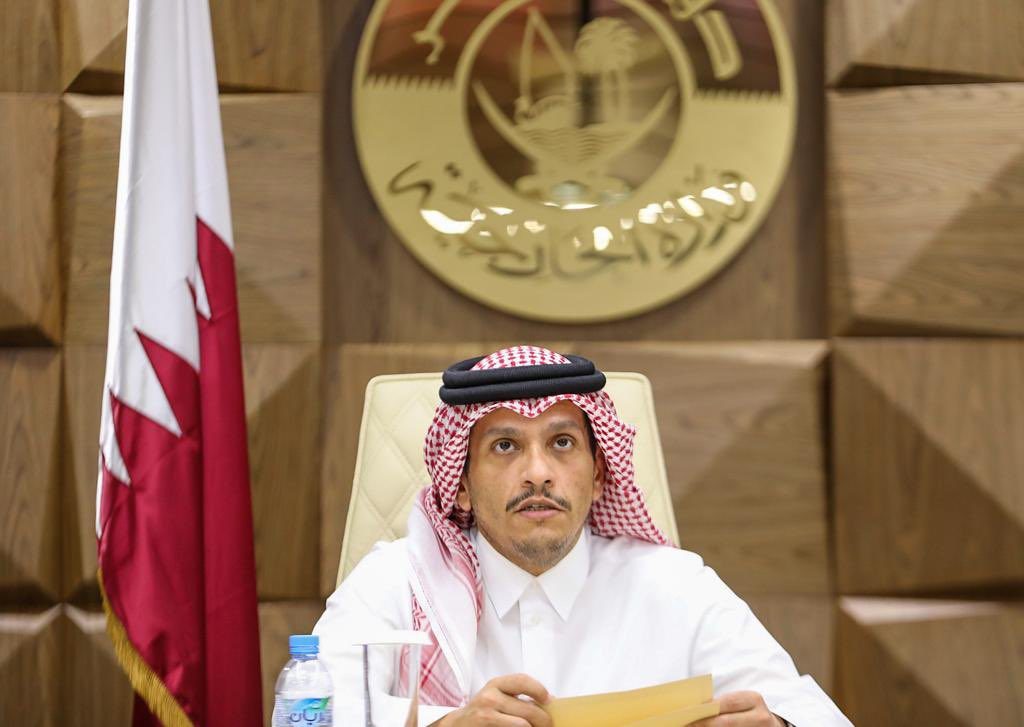The Gulf state has been engaging in several talks with the European countries as well as the United States in order to ensure the return of the nuclear deal.
Qatar’s Deputy Prime Minister and Minister of Foreign Affairs Sheikh Mohammed bin Abdulrahman Al-Thani held meetings with three different European officials as part of Doha’s efforts to revive the Joint Comprehensive Plan of Action [JCPOA].
“During the meeting, they discussed the latest developments in restoring the diplomatic track and activating dialogue, in addition to the implementation by all parties of their obligations stipulated in the agreement between the P5+1 and Iran,” said the foreign ministry in a statement.
Al-Thani met with the Ambassador of the Federal Republic of Germany to Doha Dr. Claudius Fischbach, the Ambassador of the United Kingdom Jonathan Wilks, and French Ambassador Franck Gellet – all of which represent countries involved in the 2015 agreement with Iran.
Read also: Could Qatar’s strategic location help allay US-Iran tensions?
The meeting comes at a crucial point as efforts to revive the JCPOA gears up, with Iran demanding the end of US sanctions on the Islamic Republic.
Qatar’s foreign minister previously revealed that his country has been engaging in talks with Iran and the US as part of its efforts to ensure regional stability while calling for diplomatic efforts to return to the nuclear deal.
More recently, Al Thani said his country will “spare no efforts” in its mediation between the two states.
“We hope that with the return of the US to the nuclear deal as soon as possible, challenges and sanctions can be alleviated within the framework of the deal, and Qatar will not spare any efforts to make that happen,” Al Thani said during the first high-level talks in Tehran on February 15th.
Biden’s first military operation
Recently, US President Joe Biden has appeared to be more keen on restoring the 2015 accord with Iran as part of his efforts to reverse the former Donald Trump Administration’s policies, which included Washington’s withdrawal from the deal.
But tensions surfaced in recent days, with Biden carrying out his first military operation on Friday targeting Iran-backed militias in eastern Syria. The attacks were described as a response to recent operations in Iraq targeting Baghdad’s Green Zone, where the US embassy and other bases are located.
According to Reuters, US officials said the air strikes were “supposed to send a message” that expressed Biden’s seriousness in “protecting Americans”.
When asked about the message he wanted to send, Biden said: “You can’t act with impunity. Be careful.”
Iranian Foreign Ministry spokesman Saeed Khatibzadeh condemned the attack, describing the strike as an “illegal aggression” that violated both human rights and international law.
Democrats, including Senator Bernie Sanders, have also questioned the reasoning behind the attacks.
“I am very concerned that last night’s strike by US forces in Syria puts our country on the path of continuing the Forever War instead of ending it,” said Sanders.
Reuters said it still remains unclear whether or not the latest attack will affect the process of the restoration of the “historic” nuclear deal, which Trump withdrew from in 2018, leading to piling sanctions on Tehran.
IAEA inspections
Last week, the head of the International Atomic Energy Agency [IAEA], Rafael Grossi arrived in Iran ahead of a deadline set by the Islamic Republic.
Tehran set the deadline to expel the United Nations’ [UN] inspectors assigned to monitor its nuclear activity if sanctions aren’t lifted.
However, both Iran and the IAEA reached a deal in which the two parties enabled the continuation of monitoring Tehran’s nuclear activities for the next three months with less access.
“We reached a temporary bilateral technical understanding whereby the agency is going to continue its necessary verification and monitoring activities for a period of up to three months,” said Grossi.
While the agreement remains confidential, Grossi described it as a black box-type system, where information about Iran’s nuclear activity is collected without the IAEA getting immediate access to it.
“In other words, we will know exactly what happened, exactly how many components were fabricated, exactly how much material was processed or treated or enriched and so on and so forth,” Grossi added.
Signed between Iran and the P5+1 – China, France, Russia, the United Kingdom, the United States, and Germany – the deal limited Tehran’s nuclear weapon production in exchange for the lifting of sanctions on the country.
If sanctions are lifted on Iran, Tehran will return to its nuclear commitments in accordance with the 2015 accord.
Follow Doha News on Twitter, Instagram, Facebook and Youtube







